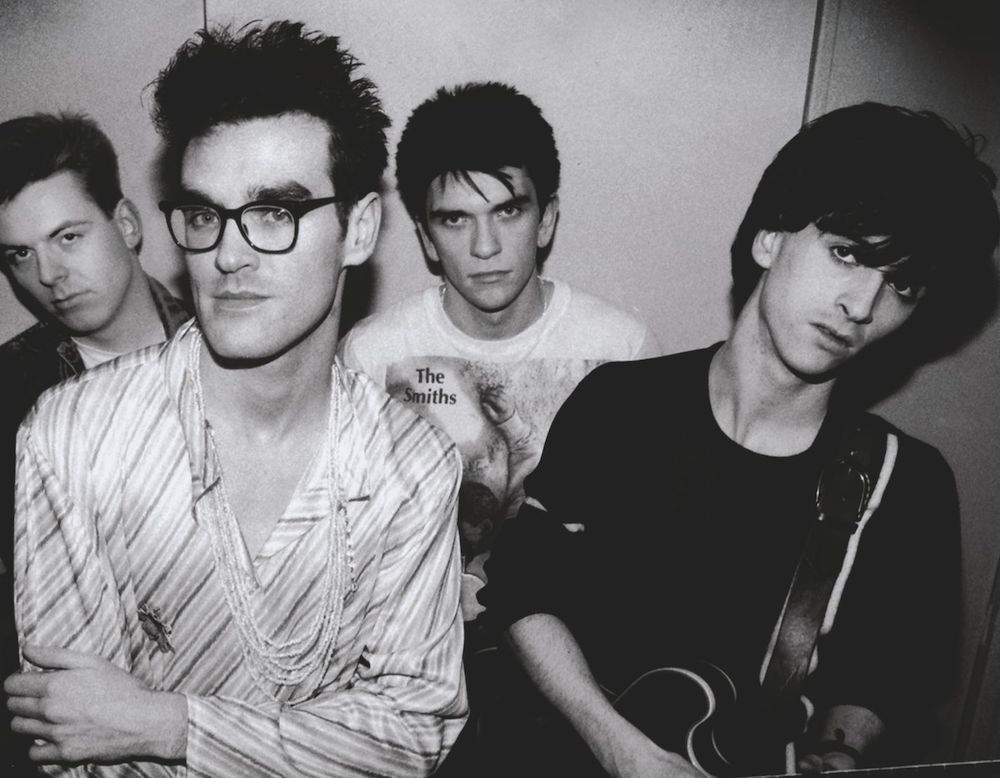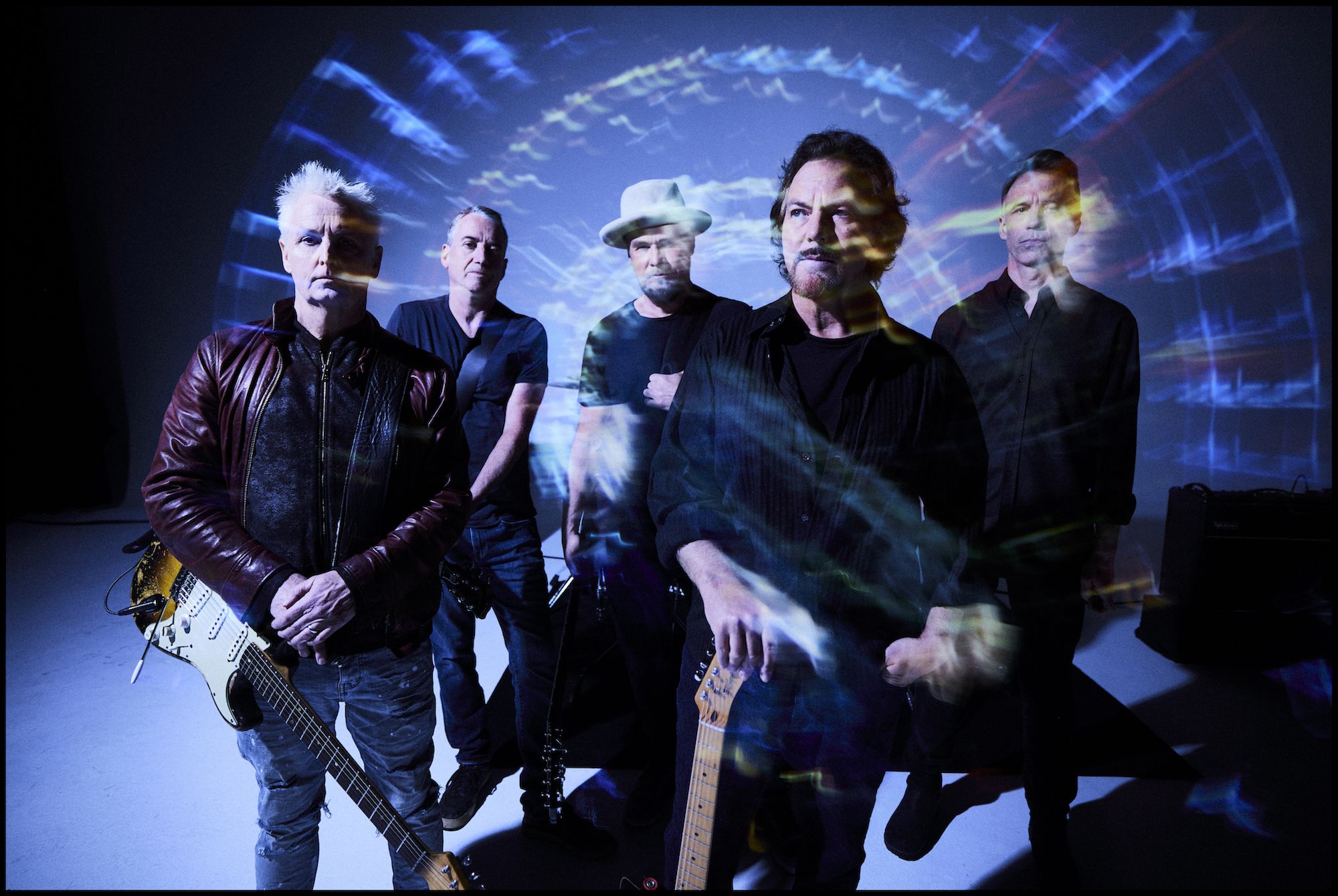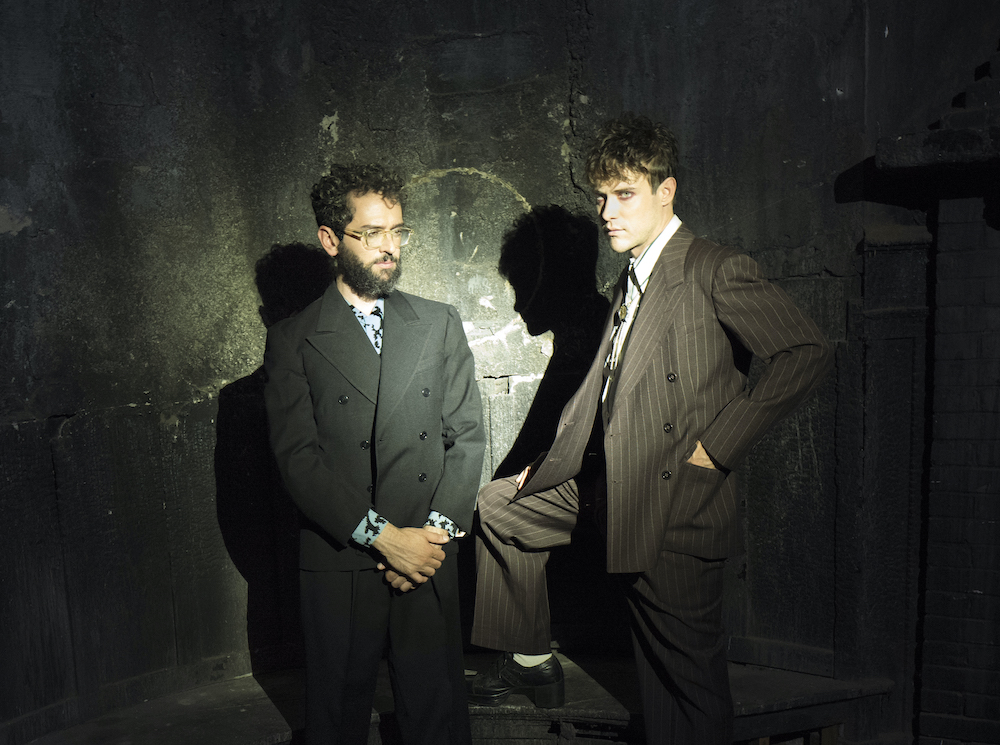The appeal of Swedish singer-songwriter Jens Lekman has often been described in terms of his apparent lack of appeal. His signature baritone is slightly nasal and far from classically accomplished, and his arrangements borrow recklessly from 20th century pop -- both canonized and disreputable. In any given Jens Lekman song, you're as likely to hear the influence of the classy baroque pop of Belle & Sebastian as you are the tacky glitz of rhinestone-era Glen Campbell. (On 2005's Oh You're So Silent Jens, Lekman samples both of them.)
The conventional wisdom holds that much of what makes Lekman great is his ability to recast forgotten or critically dismissed popular music as being artistically equal to more serious, beloved work. That's only fair to an extent. While "Maple Leaves" surely drove some listeners who never would have otherwise to check out the Mamas & The Papas and their great version of "Do You Wanna Dance?" that the song samples, it wouldn't have had that effect if Lekman didn't make his own song work first.
With three proper full-lengths and more than a dozen EPs under his belt, it's pretty clear that Lekman isn't getting by on salesmanship alone. His voice is instantly recognizable, and his plainly conversational lyrics are actually a canny sleight-of-hand, masking his incredible gifts for metaphor and narrative storytelling. His heart is fastened tightly to his sleeve, but he rarely comes across as sappy or saccharine. (And you can check the word "twee" at the door.) His choices as a composer and arranger are as eclectic and occasionally uncool as his reputation suggests, but they're also always in service of the song, never retrofitted to his lyrics to teach us a lesson about the forgotten gems of AM radio.
There's a YouTube video called "Jens Lekman Wedding Surprise" that sums up the Jens Lekman experience pretty well. In it, Lekman plays four songs at a couple's wedding at the behest of the bride, who wanted to surprise her new husband with the gift of a set by his favorite singer. Lekman looks completely at ease while playing this intimate celebration for these total strangers, and as the wedding party surrounds the couple, he remains at his microphone stand, coolly crooning the rest of his set. Three of the four songs he plays in the video make the list below, and the fourth ("Into Eternity") easily could have. The role of the surrogate romantic suits Lekman well. Like most of pop's greatest songwriters, he has a preternatural knack for making his personal experiences universal. At his best, he makes the case that he's the best songwriter working today.
10. "If You Ever Need A Stranger (To Sing At Your Wedding)" (from When I Said I Wanted To Be Your Dog, 2004)
Never let it be said that Jens Lekman is afraid of coming off as on-the-nose: the first song he plays in the aforementioned wedding video is "If You Ever Need A Stranger (To Sing At Your Wedding)." The song is one of the clear highlights on the singer's first proper full-length, When I Said Wanted To Be Your Dog, and instrumentally, it's a bit reserved for him. His voice spends nearly the duration of the song accompanied only by piano, until the string section finally swells in the closing 30 seconds. Lekman name-drops the "stupid love songs" of Burt Bacharach and Hal David in his lyric, but he also pays genuine tribute to them with a gorgeous, simple ballad that could stand up next to the finest moments of their '60s peak. Most crucially for his idiom, Lekman outs himself as a believer in true love. "I would cut off my right arm to be someone's lover" may make for some pretty dark imagery, but with the conviction in Jens' voice, it sounds downright sweet.
9. "Black Cab" (from Oh You're So Silent Jens, 2005)
2005's Oh You're So Silent Jens is, by its very nature, an uneven record. Its track listing was cobbled together from a series of Lekman's early singles and EPs, and the production values veer between crackly bedroom-fi and luminous pop-hit sheen. The best song on the collection, "Black Cab," carves out a comfortable middle ground between the two. Armed with samples of Belle & Sebastian's "Mary Jo" and the Left Banke's “I've Got Something On My Mind," Lekman navigates emotionally fraught territory without much of his trademark sense of humor to counter it. His vocal dips all the way down into a rarely used bass during the verses, which heartbreakingly complements the lyric's dour outlook. It might be his impending hangover talking, but "I killed the party again/ I ruined it for my friends" represents Jens at his darkest, even before he catches a miserable ride home that anticipates Frank Ocean's demon-outrunning on "Bad Religion." Even Lekman's saddest numbers rarely see him eschewing optimism altogether, and that makes "Black Cab" a dark treasure.
8. "A Promise" (from An Argument With Myself EP, 2011)
Like plenty of other singer-songwriters, Jens Lekman's portrayal of the specific often comes with a little geography. Most often, that means singing about one of the places he's lived (Gothenburg; Melbourne) or somewhere he had a particularly memorable encounter (Berlin; Washington, D.C.). The lilting, violin-driven "A Promise" is notable for the way it casts South America as a paradise, and then puts an ocean and a set of seemingly insurmountable obstacles between it and our narrator. Lekman spends the song at the bedside of his sick friend Immanuel, who is being failed by the Swedish healthcare system. When Immanuel gets better, he and Jens will take a trip to Chile, where it'll be all cool breeze from the Andes, full-bodied red wine against his lips, and the most beautiful women in the world. But the song ends with Lekman asking Immanuel to "imagine" all those things, and we don't know if he ever gets to see them. Santiago remains distant, even as it's colorfully evoked. "A Promise," then, is more about the beauty of a close male friendship than it is about Chile, and that makes it twice as effective.
7. "The World Moves On" (from I Know What Love Isn't, 2012)
Even the wordiest of Jens Lekman's compositions haven't typically scanned as especially epic, but the eight verses in "The World Moves On" certainly seem to be striving toward something grand. We're escorted on a surrealistic journey involving a burning city, a friendly opossum, a scooter-riding homophobe, and a heartbreaking introduction by an old flame, and the rambling instrumental echoes our lovelorn Ulysses' odyssey. No other song in the Jens canon captures the feeling of a relationship ending quite so accurately -- heartbreak is ultimately mundane, and at its nadir, you're able to recognize just how mundane it is. "You don't get over a broken heart," Lekman intones in the chorus. "You just learn to carry it gracefully." That dip into the second-person is crucial. We don't know whether Jens has learned to carry his broken heart gracefully, but he knows that we must.
6. "Become Someone Else's" (from I Know What Love Isn't, 2012)
Plenty of Lekman's best songs hinge on a turn of phrase, but none are quite as malleable in his hands as the line that lends "Become Someone Else's" its title. Sans context, it's a command. Become someone else's -- please. But Lekman also tells us "Life's too good to become someone else's," and finally makes it concrete with the devastating line "Sleeping on my arm till it becomes someone else"s." The instrumental is also interested in playing with context. A sentimental, twinkling piano line serves as the most memorable musical refrain, but after its first appearance, it starts to rise out of slower, sadder strings and forlorn open guitar chords. By the coda, Jens and his jingly piano are smiling through tears. On a breakup record as single-minded as I Know What Love Isn't, at least he's smiling.
5. "Your Arms Around Me" (from Night Falls Over Kortedala, 2007)
For someone whose music isn't afraid to engage with emotion, Jens Lekman uses some bizarre conceits as excuses to talk about love. In "Your Arms Around Me," our narrator is startled by his lover's embrace while he's slicing an avocado, cuts off his finger, and hallucinates himself being carried to the hospital in a kangaroo's pouch. Lekman never uses the L-word in the song, but in painting a scenario in which having someone's arms around you is both the cause of your pain and the thing that comforts it, he sums up love with as precise an image as he's ever managed. If the violin line that gives the song its persistent backbone is a little schmaltzy, it's likely in winking self-reference. Lekman knows his world's-best-boyfriend reputation and the stakes involved in writing a song with a title like "Your Arms Around Me." You want a love song?, Jens seems to ask. I will cut off my fucking finger to write you a love song. The violin anchors the song in its genre, which Lekman then skewers while simultaneously executing it to perfection.
4. "You Are The Light (By Which I Travel Into This And That)" (from When I Said I Wanted To Be Your Dog, 2004)
The music video for "You Are The Light" has well over half a million views on YouTube, making it Lekman's biggest hit by at least one metric. It's easy to see why, with its uptempo, all-horns-blazing verve and rare, refreshing casting of Jens as the bad boy. (When he sings, "Yeah, I got busted," he might as well be shrugging and saying "Pshhhh.") He's not a tough guy, though, at least not really, so he uses love to justify his transgressions, while at the same time suggesting that's what will ultimately save him from continuing to transgress. Jens taps into the duality of love's power multiple times throughout his discography, but he never sounds as willing to follow it down any tunnel as he does on "You Are The Light." Every romantic needs an anthem, and despite a subsequent decade's worth of material sharpening his aim, this remains Jens' anthem. It's true love as blunt force trauma, and it's utterly perfect.
3. "Waiting For Kirsten" (from An Argument With Myself EP, 2011 )
Jens Lekman's live show is a blast, and that's as much because of the stories as it is the actual songs. Jens likes to introduce each song in his set list with the context in which it actually happened. Depending on how much you decide to believe him, that practice leads to some of the most illuminating moments of the evening, and "Waiting For Kirsten" is Lekman's stranger-than-fiction zenith. Apparently, Kirsten Dunst was in Sweden to shoot Melancholia with Lars von Trier, and she told a local newspaper that she liked Jens' music. This sent Jens on a drunken, all-night quest to find Kirsten and thank her, before he was finally kicked out of the lobby of her hotel. Somehow, this comes off more sweet than stalker-ish in his song about the encounter, which filters the evening through a political lens. Lekman explains to the elusive Dunst that "In Gothenburg we don't have V.I.P. lines/ In Gothenburg you're not worth less and you're not worth any more," but in a changing Sweden where youth centers are razed to build casinos and the healthcare system is broken (see: "A Promise"), it's not certain how much longer that will be true. Even so, the last line is played for laughs -- is that a slide whistle? -- and the master storyteller gets his points in without making things sound too bleak. The degree of difficulty for the lyrical conceit Lekman attempts here is high, but he clears the bar without breaking a sweat.
2. "A Postcard To Nina" (from Night Falls Over Kortedala, 2007)
On "A Postcard To Nina," Lekman risks making himself out to be too much of a saint. Who could argue with posing as a lesbian"s boyfriend so she won"t draw the scorn of her well-meaning Catholic father? The swinging musical accompaniment to his lyric reinforces what a good guy he is and how gracefully he handled the awkward situation of Nina putting him on the spot at dinner with her dad. That is, until the last verse, when the tempo slows, the horns dissipate, and Jens croons, "Nina, I just want to check in/ 'Cause I think about you every second." He's doing the right thing, but it's tearing him up inside. The horns return for a coda -- "don't let anyone stand in your way," Jens insists -- but something has changed. Lekman wants the best for his friend, but that doesn't mean he (and, vicariously, we) can't feel a little melancholy at the same time.
1. "The Opposite Of Hallelujah" (from Night Falls Over Kortedala, 2007)
Night Falls Over Kortedala is an underrated masterpiece, and its track list runs the gamut of the Jens Lekman emotional and musical spectrums. "The Opposite Of Hallelujah" is its definitive track -- and the defining track of Lekman's career --because it's somehow its catchiest, its funniest, and its saddest one. Try not to shake your hips and tap your feet when that piano-backed violin line glides through your speakers. Try not to laugh when he sings, "I picked up a seashell to illustrate my homelessness/ But a crab crawled out of it, making it useless." And try not to crumble when he finds himself utterly unable to communicate with his younger sister. Making these disparate emotional parts cohere is a tricky proposition, but Lekman is clearly up to the challenge. In a tidy four and a half minutes, he and his band manipulate our hearts and our bodies like master puppeteers. "The Opposite Of Hallelujah" is Lekman's greatest achievement as a songwriter not just because of all that writer-y stuff, but because at any given time, it's the song of his that's the most fun to listen to again.
Listen to our Spotify playlist here.






